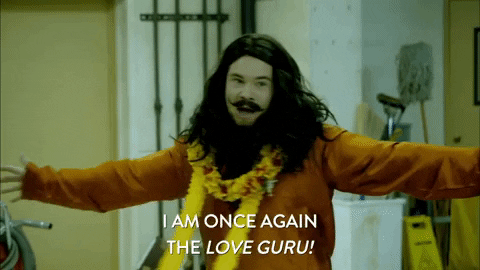🏆 The Biggest Predictor of Relationship Success Revealed 🥇
What we think are going to be the predictors of success in relationships simply are not!
And now there is scientific proof!
Did any of you see the Brad Pitt movie Moneyball? It’s about baseball and statistics, but you don’t need to know much about either of them to understand the plot: a low-budgeted baseball team used a statistician’s unorthodox approach to find and draft undervalued players, and become much more competitive than they would have been otherwise.
The statistical insight was that the traditional measurements of a prospect’s value were not actually the best predictors of how much that player would contribute to the team. By using the less-intuitive measurements picked out by statistical analysis, they found better players that everyone else overlooked.
It was so successful that the rest of major league baseball soon adopted this approach, and the small team’s advantage faded…
But you can be one of the early adopters of the same strategy in picking your long term partners, gain happier and longer lasting relationships, and use a big advantage that most people are ignoring.
The very recently published book “Don’t Trust Your Gut: Using Data to Get What You Really Want in Life”, by Seth Stephens-Davidowitz, applies cutting-edge statistical data science to relationships. Here’s an excerpt showing an example of what he found, about traits that are overvalued in dating and others that are undervalued:
“Consider, say, conventional attractiveness. Beauty, you will recall, is the single most valued trait in the dating market; Hitsch, Hortaçsu, and Ariely found in their study of tens of thousands of single people on an online dating site that who receives messages and who has their messages responded to can, to a large degree, be explained by how conventionally attractive they are.
But Joel and her coauthors found, in their study of more than 11,000 long-term couples, that the conventional attractiveness of one’s partner does not predict romantic happiness. Similarly, tall men, men with sexy occupations, and people of certain races are valued tremendously in the dating market.
But ask thousands of long-term couples and there is no evidence that people who succeeded in pairing off with mates with these desired traits are any happier in their relationship.”
He sums up his analysis thusly:
In the dating market, people compete ferociously for mates with qualities that do not increase one’s chances of romantic happiness.
He calls the highly desired qualities “shiny” because they grab attention quickly, but asserts that daters are predictably tricked by shininess!
Everyone likes things that are shiny and new. But new things inevitably get old. The things that are the most fun for short term flings are very different from the things that make happy long-term relationships, and you should plan accordingly.
Of course, the researchers were very curious about what were good predictors of happy relationships and they had a very hard time coming up with anything statistically helpful!
I was shocked to find out what they found most highly correlated with happy relationships and I asked many people after I read about it what they would guess, and none of them could!
Before I reveal the answer, take a guess yourself.
Want a hint?
These were among the questions researchers ended up asking:
“John, were you satisfied with your life before you met Sally?”
“John, did you have a positive affect before you met Sally?”
Drumroll….
One’s own happiness outside a relationship is by far the biggest predictor of one’s happiness in a romantic relationship.
As a life coach and teacher of the Handel Method® I want to say “I knew it!!”
Please shoot me an email if you have any questions!
Want a Happier Relationship? Start with YOU
Turns out the biggest predictor of long-term love isn’t chemistry, looks, or shared interests—it’s your own happiness before the relationship even begins.
✅ Learn how to build a foundation of self-worth and emotional wellness
✅ Stop chasing “shiny” traits and start prioritizing what really matters
✅ Get powerful tools to create connection from the inside out
Frequently Asked Questions about Predicting Relationship Success
1. What’s the “shiny object” trap in dating?
It’s when we chase things like beauty, status, or sex appeal because they grab our attention fast—but those traits don’t correlate with long-term happiness. They're more exciting than enduring.
2. Are you saying attraction doesn’t matter?
Not at all. Attraction is important—but conventional attractiveness isn’t a reliable predictor of a satisfying relationship. Emotional health, kindness, and shared values tend to matter more over time.
3. So what does predict relationship success?
According to research, your own happiness before the relationship is the strongest predictor. If you’re fulfilled on your own, you’re more likely to thrive with a partner.
4. Can I still find love if I’m not happy right now?
Yes, and working on your own happiness will help. Coaching, therapy, and self-reflection can raise your emotional baseline—and that will attract healthier partners and create stronger relationships.
5. What does Laurie recommend for getting started?
Laurie teaches practical tools for increasing self-love, clarifying what you want, and breaking old dating patterns in her online course Master the Art of Love. It’s designed to help you start from the inside out.




